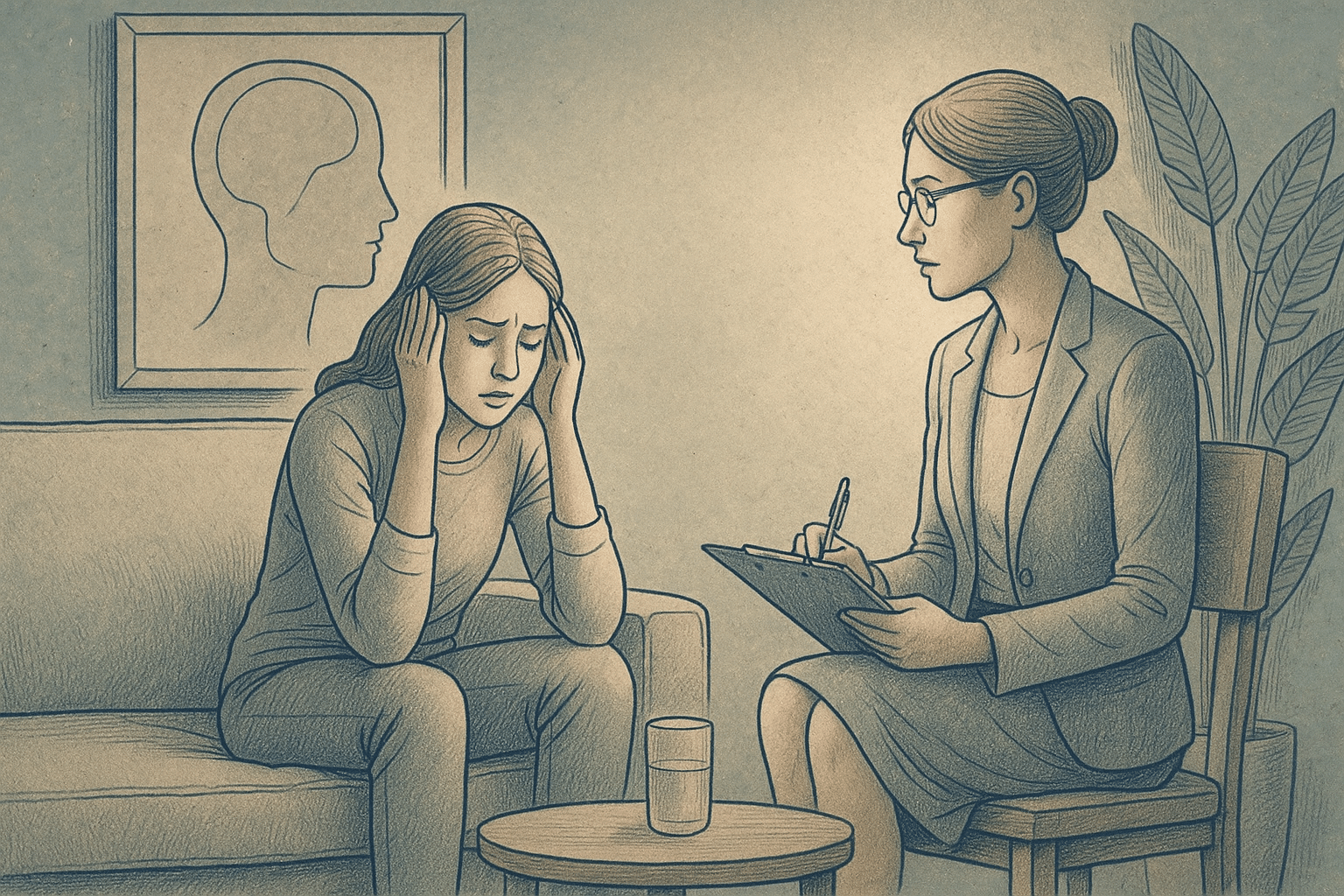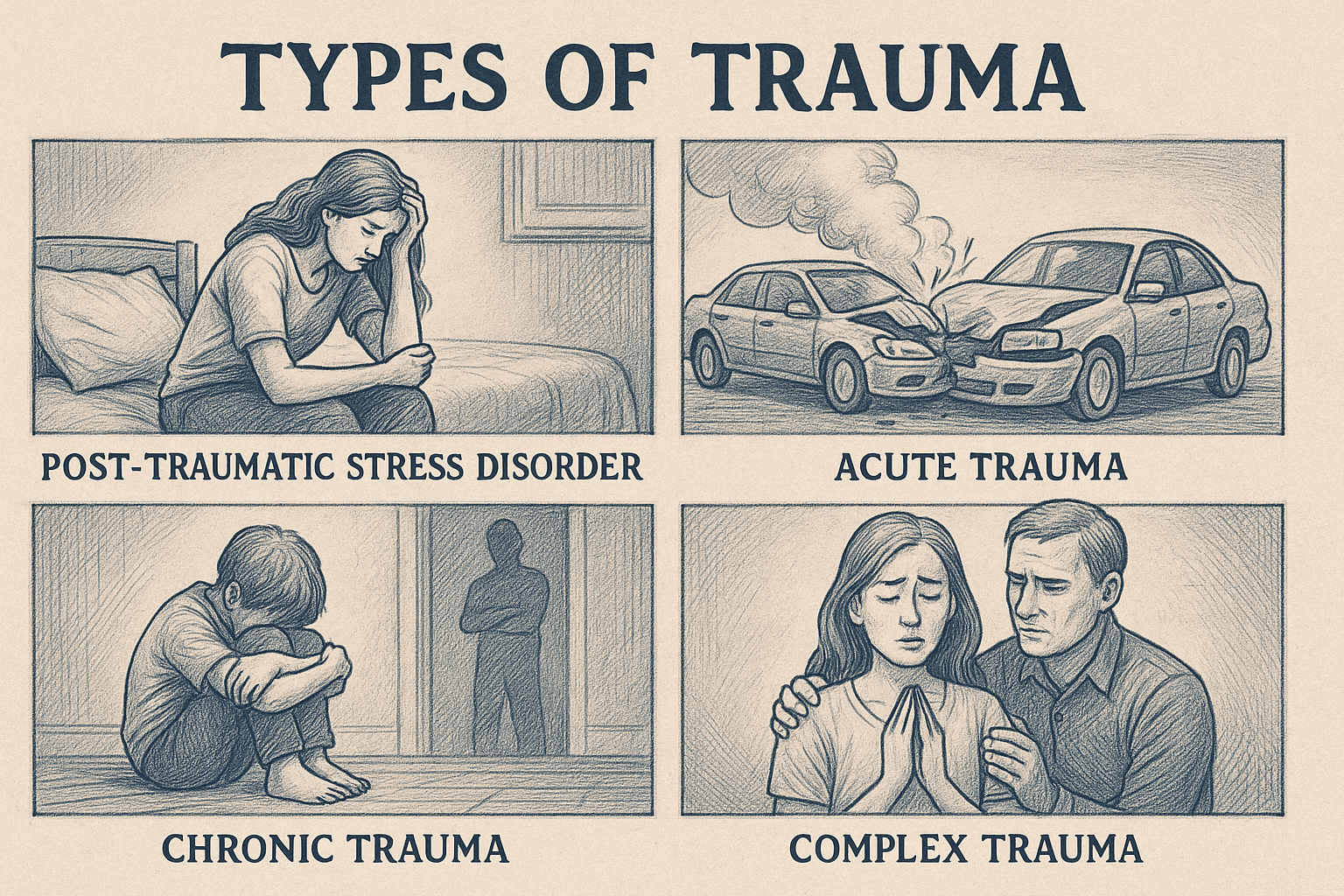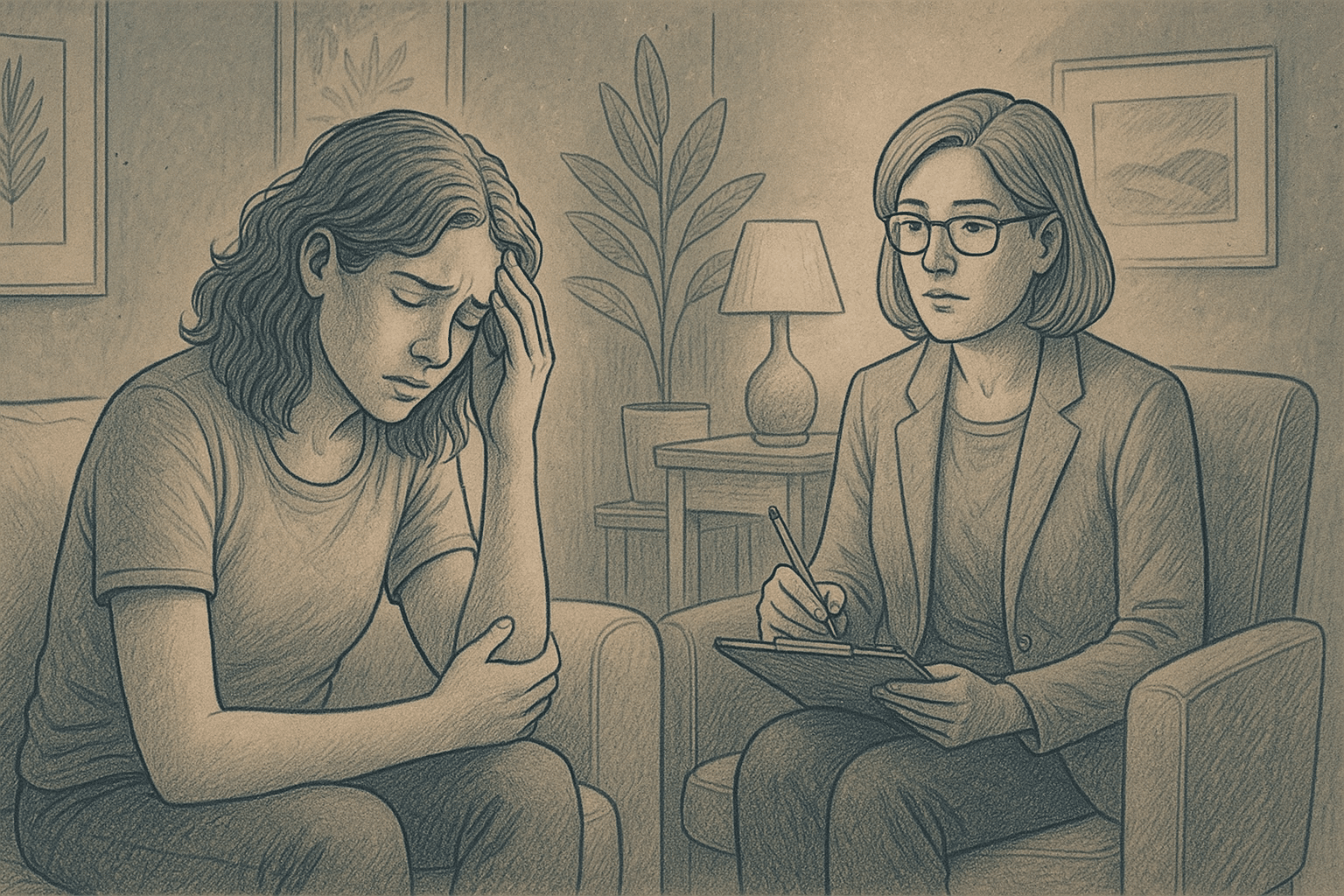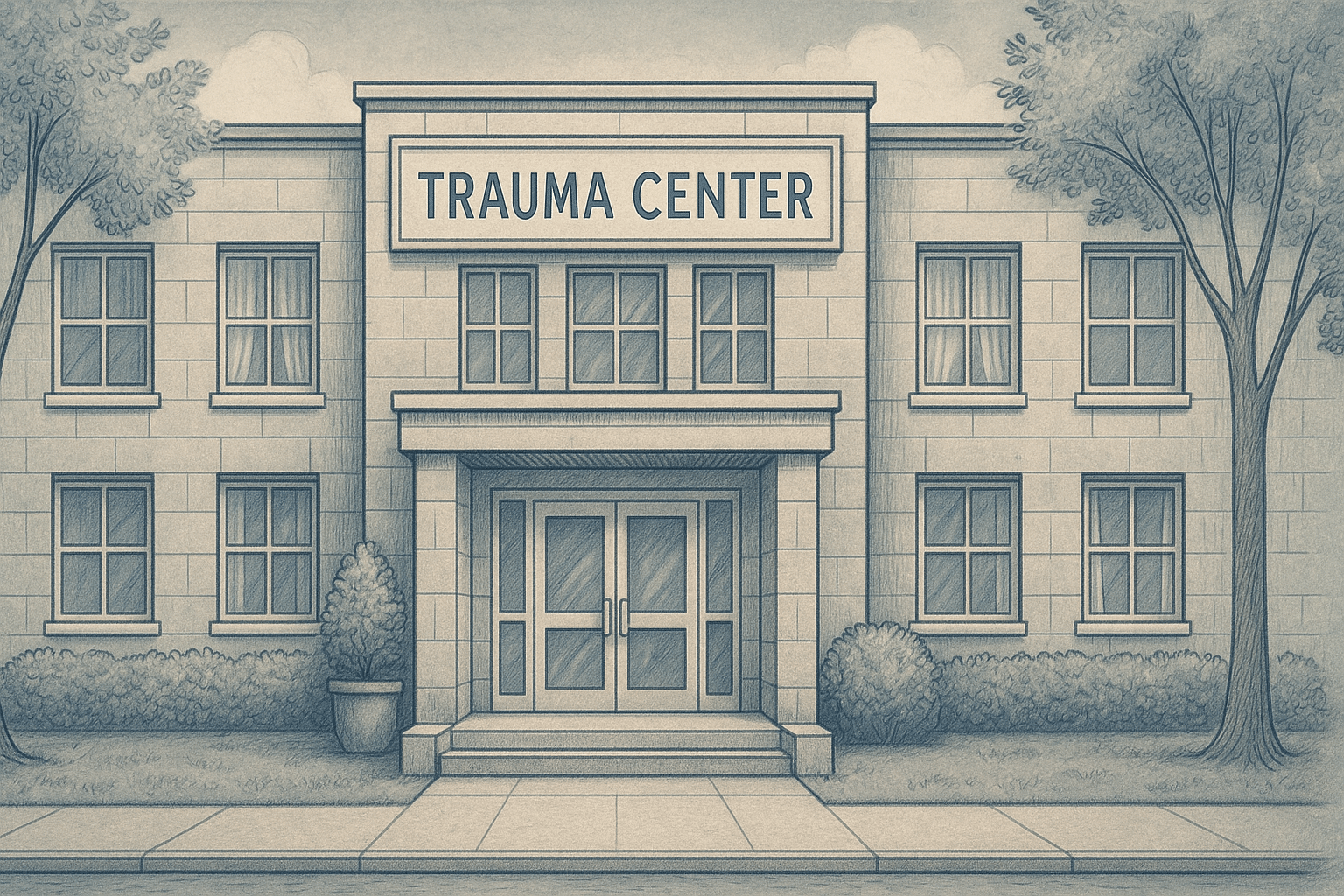
Article-at-a-Glance
- Virginia offers multiple proven trauma therapies including EMDR, Cognitive Processing Therapy, Prolonged Exposure, Somatic Experiencing, and trauma-focused group therapy, each addressing different aspects of trauma recovery with specialized approaches for various trauma types.
- Trauma therapy costs in Virginia typically range from $100–$250 per session, with many insurance plans providing coverage, making professional trauma care financially accessible to most residents.
- Virginia provides diverse treatment options including specialized trauma centers, telehealth services for rural communities, and both individual and group therapy formats, accommodating different needs, preferences, and geographic locations throughout the state.
- At Mission Connection, we provide comprehensive trauma therapy services throughout Virginia, offering evidence-based approaches like EMDR, Cognitive Processing Therapy, and Somatic Experiencing to address various trauma types.
Trauma’s Impact
Trauma’s effects extend far beyond the initial experience, often infiltrating every aspect of daily life. When traumatic memories remain unprocessed, they can manifest as intense emotional responses, relationship difficulties, and even physical health problems.
The brain’s natural protective mechanisms can become overactive, creating a state of constant alertness that exhausts both mind and body. Understanding how trauma affects the nervous system is the first step toward healing.
Types of Trauma

Acute trauma results from a single overwhelming event, such as an accident or assault. Chronic trauma develops from prolonged exposure to distressing situations like ongoing abuse or combat.
Developmental trauma occurs during childhood and can significantly impact personality formation and relationship patterns. Complex trauma involves multiple traumatic experiences, often of different types.
Secondary trauma can affect those who witness others’ suffering or hear about traumatic events, including healthcare workers and first responders.
Common Symptoms
Trauma symptoms vary widely, but often include intrusive memories, flashbacks, and nightmares that force survivors to relive their experiences.
Many develop avoidance behaviors, steering clear of people, places, or activities that trigger distressing memories. Negative mood changes, including persistent shame, guilt, or a diminished sense of self-worth, frequently accompany trauma.
Physical manifestations such as sleep disturbances, concentration difficulties, and an exaggerated startle response can significantly impair daily functioning. Without appropriate intervention, these symptoms can persist for years or even decades.
Virginia Statistics
Virginia residents experience trauma at rates comparable to national averages, with approximately 8% of women and 4% of men developing PTSD at some point in their lives.
The state’s diverse population faces varied trauma risk factors, from military service (with Virginia hosting numerous military installations) to urban violence and natural disasters.
The good news is that Virginia has seen significant growth in trauma-informed services over the past decade, with more therapists receiving specialized training in evidence-based trauma interventions.
| Mission Connection: Outpatient Mental Health Support Mission Connection offers flexible outpatient care for adults needing more than weekly therapy. Our in-person and telehealth programs include individual, group, and experiential therapy, along with psychiatric care and medication management. We treat anxiety, depression, trauma, and bipolar disorder using evidence-based approaches like CBT, DBT, mindfulness, and trauma-focused therapies. Designed to fit into daily life, our services provide consistent support without requiring residential care. Start your recovery journey with Mission Connection today! |
Effective Therapy Approaches Used in Virginia
1. EMDR Therapy
Eye Movement Desensitization and Reprocessing (EMDR) represents one of the most researched and effective trauma treatments available in Virginia.
This approach helps the brain process traumatic memories that have become “stuck” in the nervous system. During EMDR sessions, individuals focus on traumatic memories while experiencing bilateral stimulation, typically through guided eye movements, alternating tones, or tactile stimulation.
This process appears to mimic the brain’s natural memory processing that occurs during REM sleep.
2. Cognitive Processing
Cognitive Processing Therapy (CPT) helps trauma survivors identify and challenge unhelpful thoughts and beliefs that developed after their traumatic experiences.
Through structured sessions, a therapist guides you to recognize how these distorted thoughts affect emotions and behaviors. The therapy typically spans 12 sessions and includes both in-session work and practical at-home assignments designed to reinforce new thinking patterns.
Many people find that CPT helps them make sense of their experiences and reduces feelings of shame, guilt, or self-blame that often accompany trauma.
3. Prolonged Exposure
Prolonged exposure therapy directly addresses avoidance behaviors that maintain PTSD symptoms. This approach gradually helps you confront trauma-related memories, feelings, and situations you’ve been avoiding.
Through carefully paced exposure exercises, you learn that trauma reminders aren’t inherently dangerous and that distressing emotions will naturally subside over time.

Though challenging, this evidence-based approach has helped countless Virginia residents overcome debilitating trauma responses.
4. Somatic Experiencing
Recognizing that trauma affects both mind and body, Somatic Experiencing focuses on resolving physical responses to traumatic events.
This gentle approach helps you become aware of bodily sensations and complete natural defensive responses that may have been interrupted during trauma.
Rather than requiring you to relive distressing memories, Somatic Experiencing works with the body’s innate capacity for healing. It’s particularly effective for individuals who find traditional talk therapies overwhelming.
Trauma Treatment Options in Virginia
Specialized Centers

Specialized trauma centers provide multi-disciplinary approaches that address all aspects of trauma recovery, often combining individual therapy, group sessions, medication management, and complementary healing modalities.
Many offer intensive outpatient programs or partial hospitalization options for those needing more support than weekly therapy provides. The advantage of specialized centers is their focus on trauma-specific treatment protocols and the opportunity to work with clinicians who exclusively treat trauma-related conditions.
Telehealth Options
Telehealth services have revolutionized access to trauma therapy across Virginia, particularly for residents in rural areas or those with mobility limitations.
Research confirms that many evidence-based trauma therapies can be delivered effectively through secure video platforms, with outcomes comparable to in-person treatment.
The comfort of receiving therapy in one’s own space can be particularly beneficial for trauma survivors who may find new environments triggering.
Virginia Mental Health Facilities
Virginia’s public mental health system includes Community Services Boards (CSBs) that provide trauma-informed care throughout the state. These facilities offer sliding-scale fees based on income, making trauma treatment accessible to individuals regardless of their financial situation.
Many of these centers employ licensed clinicians trained in evidence-based trauma therapies such as Cognitive Processing Therapy and Prolonged Exposure therapy.
Additionally, Virginia operates several psychiatric hospitals that provide inpatient trauma treatment for individuals requiring intensive stabilization and care.
Treatment Costs
Understanding the financial aspects of trauma therapy helps you plan effectively for treatment. The investment in trauma recovery yields significant returns in improved relationships, work performance, and overall quality of life.
While costs typically range from $100–$200 per session, untreated trauma often leads to greater expenses through health complications, lost productivity, and relationship difficulties.
Several factors influence trauma therapy costs in Virginia, including provider credentials, geographic location, treatment setting, and therapy approach.
Urban areas like Northern Virginia, Richmond, and Virginia Beach typically have higher rates than rural regions. Specialists with extensive experience or advanced certifications generally charge more, though their expertise may lead to more efficient treatment.
Many individuals benefit from exploring multiple payment options rather than assuming therapy is unaffordable. By combining insurance benefits, flexible spending accounts, sliding scale options, and community resources, trauma therapy becomes accessible to most Virginians seeking help.
Begin Your Virginia Trauma Recovery Journey with Mission Connection

Mission Connection offers personalized trauma treatment approaches that address various trauma types and recovery goals. If you need EMDR for single-incident trauma, Somatic Experiencing for developmental trauma, or specialized approaches for complex PTSD, our team of clinicians are Virginia’s most qualified mental health providers.
Don’t let the process of finding help become another barrier to healing. Our experienced intake coordinators understand trauma’s impact and provide compassionate guidance through insurance processing, and treatment planning.
Take the first step toward reclaiming your life. Contact Mission Connection for your confidential consultation and see how the right trauma therapy can transform your future.
Frequently Asked Questions
How long does trauma therapy typically take in Virginia?
Trauma therapy duration varies significantly based on trauma complexity and treatment approach. Single-incident trauma using focused methods like EMDR may show substantial improvement in 8–12 sessions, while complex or developmental trauma typically requires longer treatment extending 6–18 months or more. Progress depends on individual circumstances, symptom severity, and treatment consistency.
Does Virginia Medicaid cover trauma therapy services?
Yes, Virginia Medicaid covers trauma therapy when deemed medically necessary and provided by enrolled providers. Coverage includes individual therapy, group sessions, and psychiatric services for trauma-related conditions like PTSD, anxiety, and depression. However, finding Medicaid providers with trauma specialization can be challenging, requiring careful navigation of network requirements.
What’s the difference between telehealth and in-person trauma therapy?
Most evidence-based trauma therapies can be effectively delivered through secure telehealth platforms with comparable outcomes to in-person treatment. Remote sessions offer increased access, eliminated travel time, and familiar surroundings. However, those with severe dissociation, active suicidal ideation, or limited privacy may benefit more from in-person care.
How do I verify a therapist is truly trauma-informed?
Look for specialized certifications in evidence-based trauma therapies like EMDR, Somatic Experiencing, or Cognitive Processing Therapy. Trauma-informed therapists understand neurobiological impacts, emphasize client safety and choice, work collaboratively, and recognize trauma responses as normal adaptations rather than pathology.
How does Mission Connection help me find the right trauma therapist in Virginia?
Mission Connection provides comprehensive trauma treatment that starts with an assessment to match you with the right therapist/psychiatrist whose expertise, approach, and availability align with your specific needs.
We offer confidential consultations, help with insurance coverage, and provide ongoing support throughout your healing journey.







